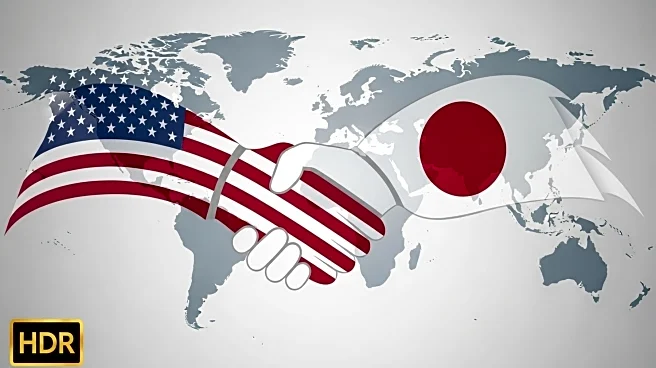What's Happening?
The United States and Japan have signed a memorandum of understanding (MOU) outlining a $550 billion investment program in the U.S. and a phased reduction of tariffs on Japanese goods. The agreement, signed by U.S. Commerce Secretary Howard Lutnick and Japan’s Economic Revitalization Minister Ryosei Akazawa, aims to enhance economic cooperation between the two nations. The MOU includes provisions for a significant investment fund to support U.S. infrastructure and industry, alongside a reduction in tariffs on Japanese automobiles and parts from 25% to 15%. The agreement reflects ongoing negotiations to strengthen bilateral trade relations.
Why It's Important?
The trade agreement between the U.S. and Japan represents a major development in international economic relations, potentially boosting investment and trade flows between the two countries. The reduction in tariffs is expected to benefit industries such as automotive and technology, enhancing competitiveness and market access. The investment fund could stimulate economic growth and job creation in the U.S., while also providing opportunities for Japanese companies. The agreement underscores the strategic importance of U.S.-Japan relations in the context of global trade dynamics and economic partnerships.
What's Next?
As the agreement progresses, both countries will continue to negotiate the specifics of the investment fund and tariff reductions. Businesses and industries affected by the agreement will need to monitor developments closely to capitalize on new opportunities. The U.S. and Japan may also explore further areas of cooperation, potentially expanding the scope of the agreement to include other sectors. The successful implementation of the agreement could serve as a model for future trade deals with other countries.

